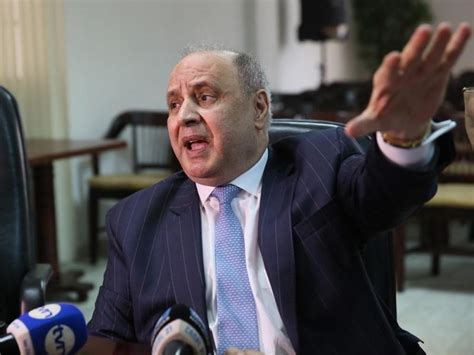Abdul Mohamed Waked Fares didn’t challenge the accuracy of the allegations, appeals court says.
Reporting for the Wall Street Journal by Samuel Rubenfeld.
The patriarch of a powerful Panamanian business family Friday lost his appeal to access evidence used to justify U.S. sanctions on him, members of his family and his companies.
The argument by Abdul Mohamed Waked Fares to obtain the sources of the U.S. government’s evidence against him was “artificially extreme,” the U.S. Court of Appeals for the District of Columbia Circuit said Friday.
The U.S. put Mr. Fares under sanctions in May 2016, alleging that he and his associates used trade-based schemes, such as bulk-cash smuggling and false invoicing, to launder money on behalf of international drug traffickers and their networks. The alleged co-leader of the organization, Nidal Waked Hatum, pleaded guilty in October 2017 in U.S. court to money-laundering conspiracy charges. He was sentenced to 27 months in prison.
Mr. Fares heads the Grupo Wisa holding company associated with his family. The U.S. alleged that the Colón-based firm, which owns a chain of duty-free shops, operated several stores that were hubs for drug-linked money laundering, including one at an airport in Panama City that facilitated bulk-cash transfers in suitcases flown there on commercial flights from around the world.
Mr. Fares petitioned to remove the sanctions a few weeks after they were handed down. The U.S. denied the request but about a month later provided some redacted evidence backing up its decision. The U.S. said Mr. Fares could seek reconsideration at another time if he could show he had severed ties with drug networks.
In late August 2016, Mr. Fares sued the U.S. Treasury Department, saying its sanctions office had violated his due-process rights by failing to provide an unredacted administrative record of its decision-making. A federal court in April 2017 rejected the claim, saying Mr. Fares received sufficient due process under the circumstances.
The appellate court agreed, ruling Friday that the challenge made by Mr. Fares was so limited that it didn’t present a “tenable claim.” Mr. Fares mounted “an all-or-nothing challenge” seeking the particular evidence against him, or more information about the sources of the evidence, an “artificially extreme argument—one that is unsupported by precedent,” the court said in its decision.
Lawyers for Mr. Fares didn’t immediately reply to requests for comment. A Treasury spokesman referred questions to the U.S. Justice Department, which didn’t immediately reply to an email seeking comment.
Mr. Fares didn’t challenge the accuracy of the allegations lodged by the U.S. government, nor did he ask to make the accusations more specific, the court said in its decision. He “declined to take the multiple routes” available to challenge the sanctions designation “that could have enhanced [his] procedural protections” without compromising government interest in withholding classified information, the court ruled.
That makes the case unlike other challenges to sanctions designations made by the U.S. government, the ruling noted, pointing out that individuals and entities targeted on the basis of classified evidence usually bring both due-process and substantive claims.
Courts have ruled that the U.S. government can make sanctions decisions using classified evidence, but they also have ruled that judges and certain cleared defense lawyers can view the full record to ensure a challenger’s rights weren’t violated.
But Mr. Fares didn’t pursue that argument. Instead, the court said in its decision, Mr. Fares merely argued he must see the full record or the sanctions on him must be removed.
“That unyielding argument runs counter to precedent…We note that other avenues remain for plaintiffs should they elect to use them to challenge their designation in the future,” the ruling said.
